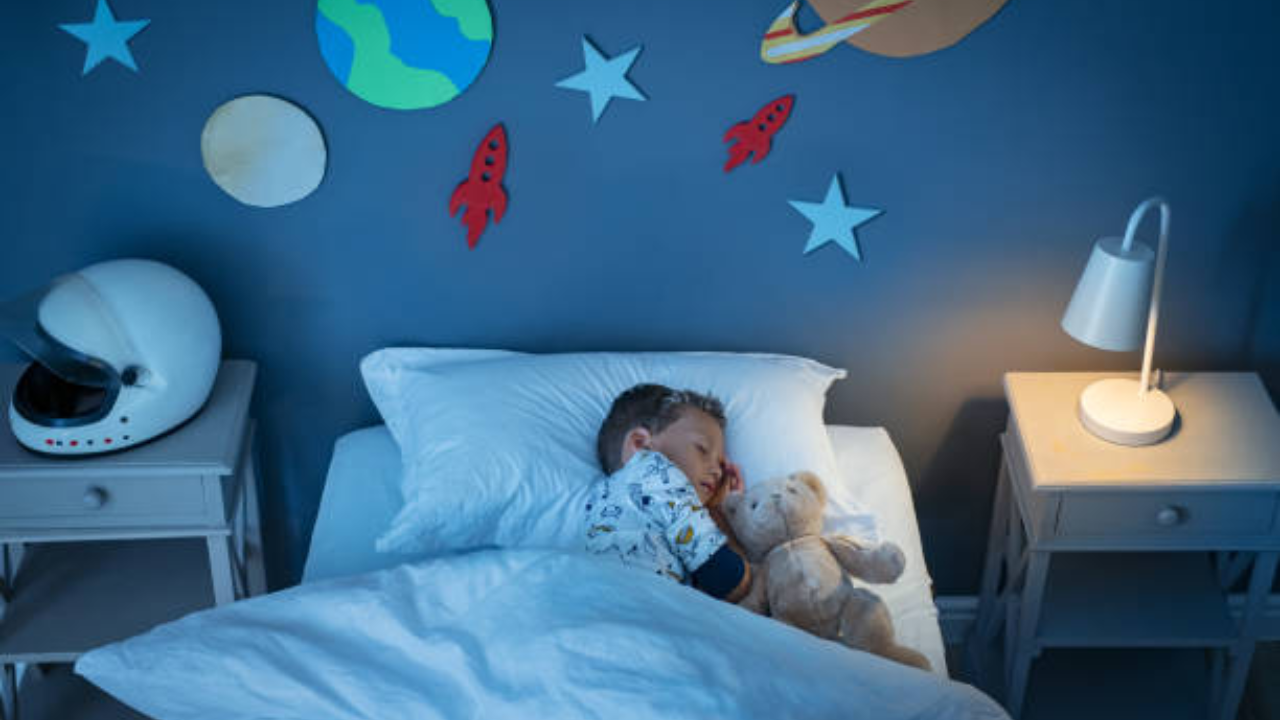-
news
-
Health
Consistent sleep schedule may help kids better manage their emotions, behavior, study finds
A recent study published in the Journal of Developmental and Behavioral Pediatrics and conducted by researchers at Pennsylvania State University, US, found that children with a consistent bedtime demonstrate better control over emotions and behavior. The children wore a monitor on their wrist for seven days, measuring nighttime sleep and activity. Read on to know more.

Kids with consistent bedtime can better manage their emotions, behavior
Photo: iStock
A new study finds that children with a consistent bedtime demonstrate better control over emotions and behavior when working with others or under stress. The study was conducted by researchers at Pennsylvania State University, US and published in the Journal of Developmental and Behavioral Pediatrics. The participating children were part of the university’s Intervention Nurses Start Infants Growing on Healthy Trajectories (INSIGHT) study.
Researchers analyzed sleep and behavior data from 143 six-year-old children whose mothers were trained about responsive parenting in the first 2.5 years after birth. Parenting style revolves around responding to the child’s emotional and physical needs in a warm and consistent manner. One of the aspects of responsive parenting includes creating a supportive and predictable sleep environment, techniques for which include soothing babies by rocking or patting them.
A 2016 study published in the journal Pediatrics found that responsive parenting helped babies develop bedtime routines and sleep behaviors in the first year after birth. The latest study, which is long-term, has shown consistent benefits of a regular sleep schedule in children, the authors said.
The authors said, “The findings support the importance of consistency in sleep timing and how it plays a greater role than average actigraphic sleep duration and quality (measured using wearable devices) in children’s behavioral and emotional outcomes.” Can perform.”
“Children who had regular sleep schedules were generally better able to regulate their behavior and emotions,” said lead researcher Adwoa Dadzie, a doctoral student in biobehavioral health at Pennsylvania State University. “On the other hand, children who had different bedtimes and bedtimes showed more impulsivity and less control.”
For the study, children wore a monitor on their wrist for seven days, measuring nightly sleep and activity. Aspects such as sleep and wake times as well as sleep efficiency and duration were recorded.
The data were then compared to the children’s performance on a task designed to test their response to feeling frustrated. Each child chose a toy from a large selection that they wanted to play with. The chosen toy was placed in a clear box and locked. The child was given a set of keys, none of which unlocked the box.
The researchers then observed self-regulated behavior in the child, which included self-talk and trying each key, and a lack of self-regulation, which included throwing away the keys without trying them all. After four minutes, the children were handed the correct key to the box and allowed to play with the toy.
Another task included in the study was collaborative, which tested children’s ability to cooperate. The results showed that the more a child’s sleep schedule changed each night, the worse their behavior and emotions became.
(With inputs from PTI)
Get the latest news live on Times Now with breaking news and top headlines from around the world.


